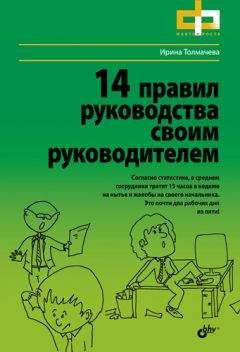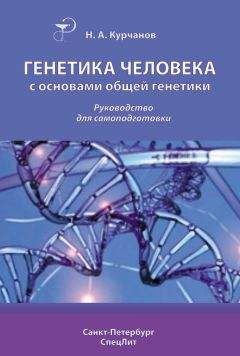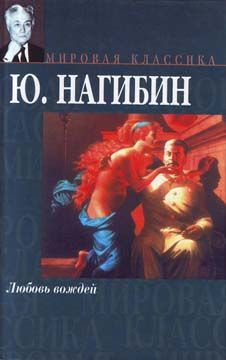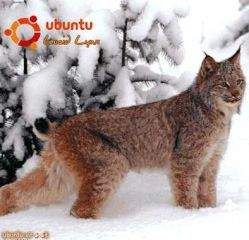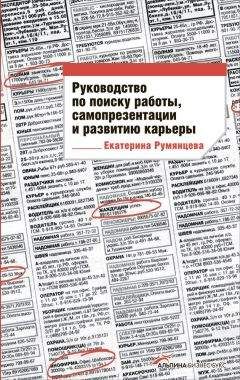Ольга Ламонова - Английский язык. Ирландские волшебные сказки / Irish Fairy Tales
In the morning she went with him to the sea-shore to the boat. The king gave the prow of the boat to the sea, and its stern to the land; then he raised the sails, and went his way. The music he had was the roaring of the wind with the whistling of eels, and he broke neither oar nor mast till he landed under his own castle in Erin.
Three quarters of a year after (спустя девять месяцев: «три четверти года спустя»), the queen of Lonesome Island gave birth to a son (королева Одинокого Острова родила сына: «дала рождение сыну»). She reared him with care (она растила его с заботой; to rear – поднимать /голову, руку/; растить, воспитывать /потомство/) from day to day (день ото дня) and year to year (и год от года) till he was a splendid youth (пока он не стал великолепным юношей). She taught him the learning of wise men one half of the day (она обучала его знанию мудрецов: «мудрых людей» одну половину дня; to teach /taught/; learning – изучение, учение; знания, эрудиция), and warlike exercises with Druidic spells the other half (и боевой подготовке: «военным упражнениям» при помощи чар друидов в другую половину дня; war – война; warlike – воинственный; относящийся к войне, военный).
Three quarters of a year after, the queen of Lonesome Island gave birth to a son. She reared him with care from day to day and year to year till he was a splendid youth. She taught him the learning of wise men one half of the day, and warlike exercises with Druidic spells the other half.
One time the young man (однажды этот юноша: «молодой человек»), the prince of Lonesome Island (принц Одинокого Острова), came in from hunting (пришел = вернулся /домой/ с охоты), and found his mother sobbing and crying (и обнаружил свою мать рыдающей и плачущей; to find /found/ – находить, обнаруживать; найти, застать /где-л., за каким-л. занятием/).
“Oh! what has happened to you, mother (что с тобой случилось, мама)?” he asked (спросил он).
One time the young man, the prince of Lonesome Island, came in from hunting, and found his mother sobbing and crying.
“Oh! what has happened to you, mother?” he asked.
“My son, great grief has come on me (сын мой, большое несчастье случилось со мной: «нашло на меня»). A friend of mine is going to be killed tomorrow (одного моего друга убьют завтра: «один мой друг будет убит завтра»).”
“Who is he (кто он /такой/)?”
“My son, great grief has come on me. A friend of mine is going to be killed tomorrow.”
“Who is he?”
“The king of Erin (король Ирландии). The king of Spain has come against him with a great army (король Испании пошел против него с огромной армией). He wishes to sweep him and his men (он хочет смести его и его людей; to sweep – мести, подметать; сносить) from the face of the earth (с лица земли; face – лицо, физиономия; поверхность /земли, воды/), and take the kingdom himself (и сам захватить /его/ королевство; to take – брать, хватать; захватывать).”
“The king of Erin. The king of Spain has come against him with a great army. He wishes to sweep him and his men from the face of the earth, and take the kingdom himself.”
“Well, what can we do (ну и что мы можем сделать)? If I were there (если бы я был там), I’d help the king of Erin (я бы помог королю Ирландии).”
Since you say that, my son (поскольку ты так говоришь: «ты говоришь то», сын мой), I’ll send you this very evening (я отправлю тебя /туда/ сегодня же вечером: «этим самым вечером»). With the power of my Druidic spells (при помощи силы моих друидических чар), you’ll be in Erin in the morning (ты будешь в Ирландии утром).”
“Well, what can we do? If I were there, I’d help the king of Erin.”
Since you say that, my son, I’ll send you this very evening. With the power of my Druidic spells, you’ll be in Erin in the morning.”
The prince of Lonesome Island went away that night (/так/ принц Одинокого Острова ушел в ту же ночь), and next morning at the rising of the sun (а на следующее утро, на восходе солнца; rising – подъем, повышение; восход) he drew up his boat under the king’s castle in Erin (он остановил свою лодку под /окнами/ замка короля Ирландии; to draw /drew, drawn/ – тащить, волочить; to draw up – останавливать/ся/; boat – лодка, шлюпка, корабль). He went ashore (он сошел на берег), and saw the whole land black with the forces of the king of Spain (и увидел, что вся земля черна от войск короля Испании; land – земля, суша; страна, территория; force – сила; войска, вооруженные силы), who was getting ready to attack the king of Erin (который готовился напасть на короля Ирландии; to get – доставать, добывать; становиться, делаться) and sweep him and his men from the face of the earth (и стереть его и его людей с лица земли; to sweep – мести, подметать; сносить; face – лицо, физиономия; поверхность /земли, воды/).
The prince of Lonesome Island went away that night, and next morning at the rising of the sun he drew up his boat under the king’s castle in Erin. He went ashore, and saw the whole land black with the forces of the king of Spain, who was getting ready to attack the king of Erin and sweep him and his men from the face of the earth.
The prince went straight to the king of Spain (принц пошел прямо к королю Испании), and said (и сказал), “I ask one day’s truce (я прошу одного дня перемирия; to ask – спрашивать; просить; требовать).”
“You shall have it, my champion (ты его получишь: «ты будешь его иметь», /мой/ отважный воин; champion – поборник, защитник /чего-л./; /поэт./ отважный воин, витязь),” answered the king of Spain (ответил король Испании).
The prince went straight to the king of Spain, and said, “I ask one day’s truce.”
“You shall have it, my champion,” answered the king of Spain.
The prince then went to the castle of the king of Erin (тогда принц пошел в замок короля Ирландии), and stayed there that day as a guest (и провел там тот день в качестве гостя; to stay – оставаться, не уходить; останавливаться, гостить). Next morning early (рано следующим утром) he dressed himself in his champion’s array (он облачился в воинские доспехи: «он одел себя в свое воинское облачение»; array – /поэт./ наряд, облачение, одеяние), and, taking his nine-edged sword (и, взяв свой меч с девятью клинками; edge – острие, лезвие), he went down alone to the king of Spain (он пошел в одиночестве к королю Испании; to go /went, gone/ down – спускаться), and, standing before him (и, встав перед ним), bade him guard himself (предложил ему защищаться; to bid /bade, bidden/ – /поэт., книжн./ приказывать, просить; to guard – охранять, сторожить; оберегать, защищать).
The prince then went to the castle of the king of Erin, and stayed there that day as a guest. Next morning early he dressed himself in his champion’s array, and, taking his nine-edged sword, he went down alone to the king of Spain, and, standing before him, bade him guard himself.
They closed in conflict (они сошлись в бою; to close – заканчивать, завершать; /воен./ войти в соприкосновение; conflict – конфликт, противоречие; вооруженный конфликт, война), the king of Spain with all his forces on one side (король Испании со всеми своими войсками с одной стороны), and the prince of Lonesome Island on the other (и принц Одинокого Острова с другой). They fought an awful battle that day (они бились страшной битвой в тот день; to fight /fought/) from sunrise till sunset (от восхода до заката).
They closed in conflict, the king of Spain with all his forces on one side, and the prince of Lonesome Island on the other. They fought an awful battle that day from sunrise till sunset.
They made soft places hard (они делали мягкие места твердыми = мягкое стало твердым), and hard places soft (а твердые места мягкими = а твердое мягким); they made high places low (они делали высокие места низкими = высокое стало низким), and low places high (и низкие места высокими = а низкое высоким); they brought water out of the centre of hard gray rocks (они извлекали: «выводили наружу» воду из сердцевины жестких серых скал; to bring /brought/ – приносить; to bring out – выявлять, обнаруживать; centre – центр, середина), and made dry rushes soft (и делали сухие тростники мягкими) in the most distant parts of Erin till sunset (в самых отдаленных частях Ирландии до /самого/ заката; part – часть, доля; местность, край); and when the sun went down (а когда солнце закатилось: «пошло вниз»), the king of Spain and his last man were dead on the field (король Испании и все его воины были мертвы: «и его последний человек был мертв» на поле /битвы/; field – поле, луг; поле боя).
They made soft places hard, and hard places soft; they made high places low, and low places high; they brought water out of the centre of hard gray rocks, and made dry rushes soft in the most distant parts of Erin till sunset; and when the sun went down, the king of Spain and his last man were dead on the field.
Neither the king of Erin nor his forces took part in the battle (ни сам король Ирландии, ни его войска не принимали участия в той битве; to take /took, taken/ – брать; part – доля, часть; участие, доля в работе; to take part – принимать участие, участвовать в чем-л.). They had no need (у них не было /в том/ нужды), and they had no chance (у них не было никакой возможности /сделать это/; chance – случай, случайность; шанс, вероятность, возможность).
Neither the king of Erin nor his forces took part in the battle. They had no need, and they had no chance.
Now the king of Erin had two sons (так вот, у короля Ирландии было два сына), who were such cowards (которые были такими трусами) that they hid themselves from fright during the battle (что они спрятались от страха во время битвы; to hide /hid, hidden/); but their mother told the king of Erin (но их мать сказала королю Ирландии) that her elder son was the man (что именно ее старший сын был тем человеком) who had destroyed the king of Spain and all his men (который уничтожил короля Испании и всех его воинов: «людей»).
